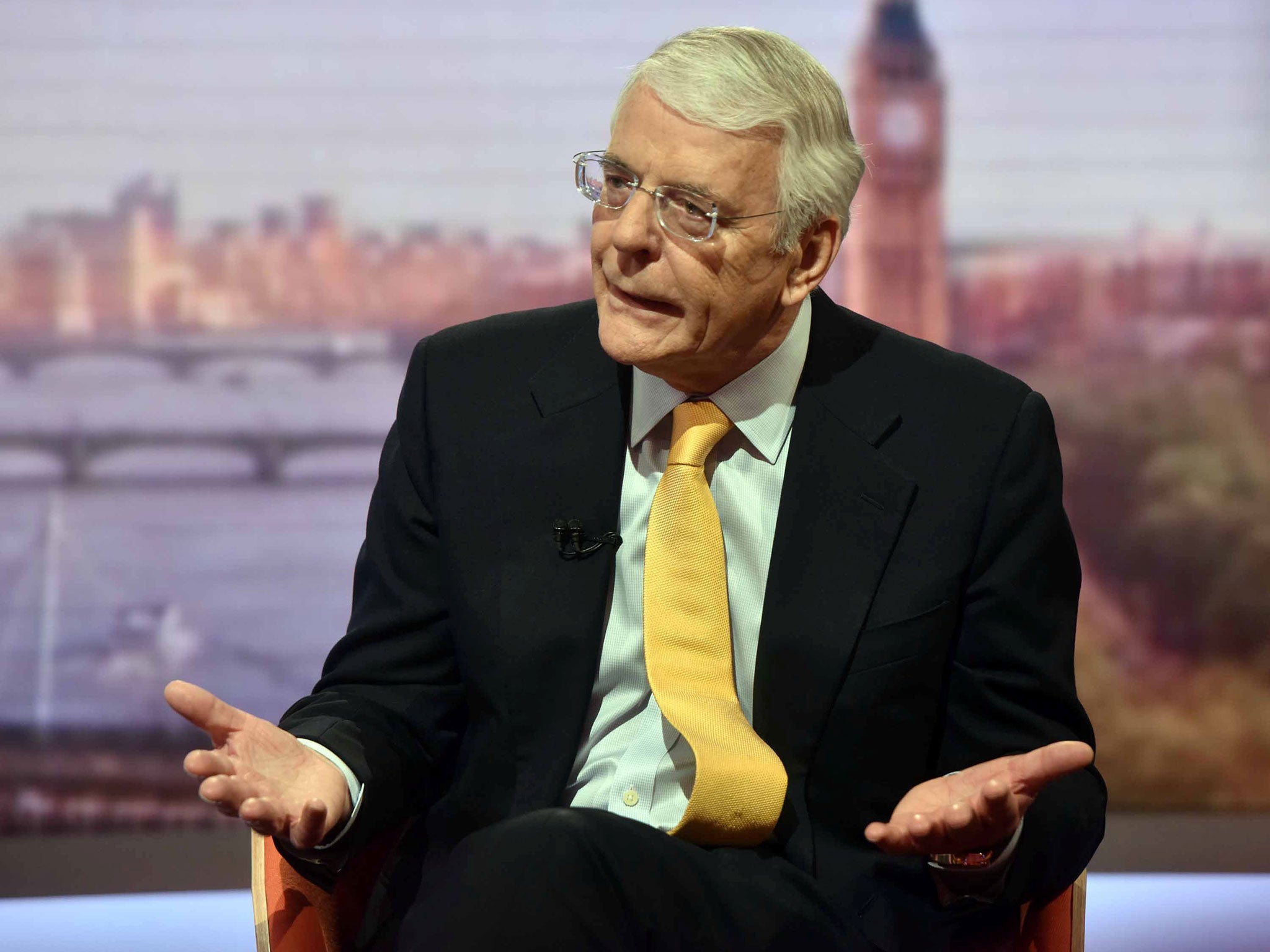The Conservatives aren't really split on Europe – the rift runs much deeper
The rejection of pragmatic centrism for ideological purity has hamstrung one of this country’s great parties, and now the other is at serious risk

Support truly
independent journalism
Our mission is to deliver unbiased, fact-based reporting that holds power to account and exposes the truth.
Whether $5 or $50, every contribution counts.
Support us to deliver journalism without an agenda.

Louise Thomas
Editor
When the heady days of the referendum are behind us, there will be a reckoning for the Conservative Party. Words have been uttered that will not easily be forgotten. Old friends have turned foes, and the peaceable amity brought by power has disintegrated. But it was ever thus, for the rift within the Tories is not about Europe but about the party’s old struggle with itself: to stay true to its roots, or to modernise with the country it seeks to lead.
David Cameron may have hoped to avoid blue-on-blue attacks by calling a referendum on Europe, the party’s flashpoint, but those hopes have been dashed. A Tory civil war is now playing out in television studios every Sunday morning.
Last month it turned nasty, as Tory backbenchers began to prepare for a post-referendum leadership coup. Nadine Dorries described her prime minister as “toast”; Andrew Bridgen said Cameron was “finished” regardless of the result. One anonymous MP even spoke of wanting to stab Cameron in the front, “so I can see the expression on his face”. The “bastards” of John Major’s nightmares were back with a vengeance.
Fittingly, it was Major himself who returned fire for the Remain camp. Appearing on the Andrew Marr Show yesterday he took aim at Vote Leave, calling its campaign “squalid” and “deceitful”, and branding Boris Johnson a “court jester”.
Johnson was surprisingly conciliatory in response, but the die has long been cast: Cameron is in danger after June 23.
It is often said that he who wields the knife shall never wear the crown – and thank God for that. The prospect of fringe figures such Bridgen or Dorries leading the party would remind even the staunchest Brexiteer of Cameron’s merits. Perhaps their comments can be dismissed as the predictable views of the usual cranks.
But their words remind us of the broader split within the party. Many on the Conservative right have never trusted Cameron. They reluctantly went along with his modernisation programme, hoping it was more tactical than profound, but were always suspicious of his Conservative credentials.
They grumbled about his early focus on climate change. They raged over same sex marriage. They even produced an ‘Alternative Queen’s Speech’ in 2013, containing proposals to ban the burqa, privatise the BBC and bring back capital punishment. The Prime Minister’s desire to remain in the EU is, for this eternal faction, the straw that broke the dinosaur's back.
By holding a referendum, rather than healing the wound, Cameron has presented his opponents with the perfect opportunity to rip him apart. James Cleverly, a Tory MP campaigning for Leave, conceded as much. “A small number of people on the Brexit side who have never reconciled themselves to Cameron’s leadership are using this as a proxy war against their leader,” he said.
In the ceaseless Tory war between modernisers and traditionalists, the Brexiters fall largely into the latter group. They see Cameron as a sell-out who has squandered their years in government on wishy-washy liberalism. The same politicians who now claim a Brexit would help fully fund the NHS and allow the UK to play a greater hand in international development are those who have long disparaged the Prime Minister for addressing such issues in the first place.
Never mind that Cameron is the first sitting Prime Minister to win an increased majority in a century. Forget, too, that it was his modern brand of Conservatism that returned the party to power after 13 bleak years in opposition.
Logic and reason play only a walk-on part in this battle. Whatever the result of the referendum, many Brexiters will want him gone after 23 June. And in his place, many will desire a so-called “proper Conservative”.
We have seen this approach take hold elsewhere: the argument that Cameron is not really a Conservative is echoed on the hard left, among those who accused Tony Blair of being a “red Tory”. It’s a dangerous path to tread.
The Conservative Party, like Labour, is made up of diverse philosophical strands: from libertarians to One Nationers to the harrumphing quasi-Ukip fringe. But if the party allows itself to be overrun by a narrow sect that eschews all but true believers, it will go the way of Jeremy Corbyn’s Labour Party.
Lord Blake, an eminent Conservative historian, wrote that a “stern, unbending” ideology had “never paid dividends” to the party. If the British political system is to avoid a complete internal collapse, the Tories must remember this when Cameron finally departs. The rejection of pragmatic centrism for ideological purity has already hamstrung one of this country’s great parties – we mustn’t allow the other to fall to the same fate.
Join our commenting forum
Join thought-provoking conversations, follow other Independent readers and see their replies
Comments